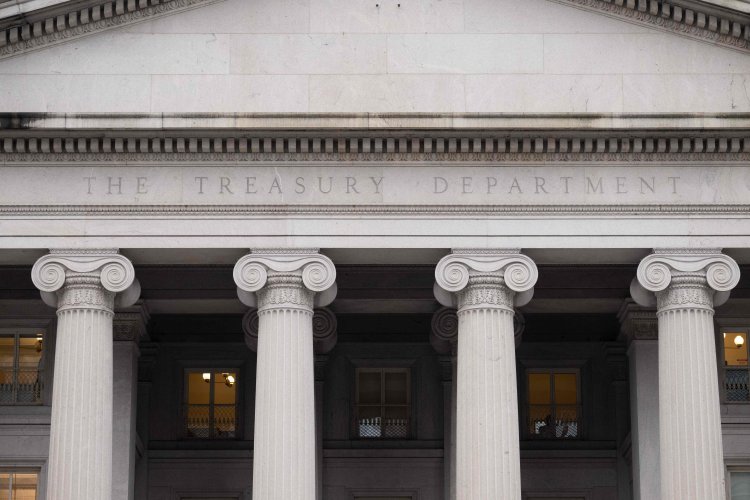'Trust is going down': Why the bond market poses a threat to Trump
Chip Hughey, a managing director of fixed income securities at Truist, noted, “The market now believes that trade policy can change from minute to minute.”

The significant sell-off in government debt securities, which serve as the foundation of the global financial system, led Trump to temporarily suspend his plans for substantial tariffs on various trading partners for 90 days. "I was watching the bond market," he explained. "That bond market is very tricky."
As Trump’s inner circle navigates numerous bilateral negotiations and ramps up the trade conflict with China, this will likely not be the last instance of the president's market sensitivities being tested. If bond investors continue to express concern over what many perceive as Trump’s erratic approach, he may face considerable pressure to resolve ongoing conflicts.
“The market now believes that trade policy can change from minute to minute,” stated Chip Hughey, managing director of fixed income securities at Truist. “I don’t think the volatility is going anywhere.”
Typically viewed as a safe haven during turbulent times, government bonds have seen a different trend recently. Even as stock prices fell, hedge funds and other investors have sold off Treasury securities, which has led to rising yields affecting benchmarks for various financial products, from mortgage rates to corporate loans.
The 90-day pause has not alleviated market anxieties. Economists warn that stagflation—a combination of weak growth and soaring prices—is highly probable. Continued uncertainty in trade policy may unnerve bond investors and increase borrowing costs, creating a perilous mix of high interest rates, rising inflation, and sluggish or negative economic growth. This scenario could hinder Trump's broader policy initiatives and pose serious threats to Republicans in the 2026 midterm elections.
Despite the pause, tariffs on imports are currently five to ten times higher than they were at the beginning of Trump’s presidency. The tariffs enforced by Trump have surpassed even the “mega-size” projections made by economists at the Federal Reserve Bank of Chicago prior to Trump’s April 2 “Liberation Day” announcement, as noted by Chicago Fed President Austan Goolsbee during an event with the Economic Club of New York on Thursday.
Without a clear strategy regarding tariffs, Goolsbee expressed skepticism about an imminent rebound in the bond market. “There's a lot of selling pressure in an environment where it's uncertain whether we're going to enact this largest tariff in 100 years — and it might be bigger than that,” he remarked to reporters. Considering the significant amount of government debt issued in recent years, he added, “I could see there being a lot of continued uncertainty.”
In the weeks ahead, more profound questions may arise about the stability of the U.S. financial system amid ongoing turmoil, though it has weathered the storm well thus far, with no significant disruptions reported. Recent auctions for 10- and 30-year Treasury securities have proceeded smoothly, indicating that demand has not completely diminished.
It remains unclear whether the disturbances in the bond market stem from general market instability—some investors may be liquidating Treasuries for cash—or if they signify a deeper lack of confidence in U.S. assets as Trump alters the international economic landscape.
“The amount of Treasury debt that is in existence, plus the amount that will likely be produced by large deficits, is very large relative to the demand. If there weren’t the geopolitical confrontations, this would be a big problem — unless they cut the deficit to about 3 percent of GDP, which is not going to happen,” noted Ray Dalio, the founder of hedge fund giant Bridgewater Associates, in an email.
However, he cautioned, “with the geopolitical circumstances raising concerns among large international investors that they might not get the full value of their Treasury bonds, this is an even bigger problem.”
Julia Coronado, founder of MacroPolicy Perspectives, highlighted that institutions are diversifying away from dollar-denominated assets. While some investors view this as a short-term adjustment as policies evolve, others are reconsidering their long-term investment strategies in the U.S.
She warned that the bond market may no longer react favorably to U.S. tax and spending decisions beyond tariffs. “Yields are not falling even though people are pricing in a recession,” she observed. “They’re pushing this very undisciplined budget, and the market’s not taking it well.”
“Trust is going down,” she added. “You have to pay for those decisions.”
Max Fischer for TROIB News
Find more stories on Business, Economy and Finance in TROIB business












